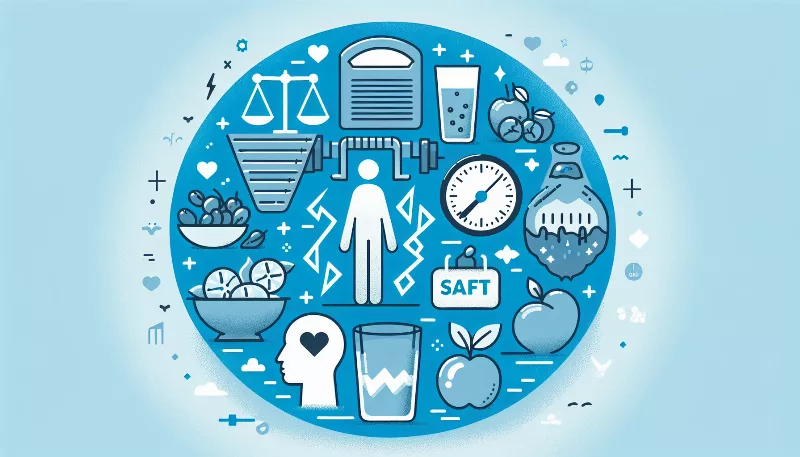What are the potential risks and how can they be mitigated when practicing detox fasting?
Discover safe detox fasting practices. Learn about potential risks and expert tips to mitigate them for a healthier cleanse journey.

Embarking on the Detox Fasting Journey
Detox fasting has become a beacon of hope for many seeking to cleanse their bodies and reset their health. The enthusiasm surrounding this practice is palpable, as individuals from all walks of life share their transformative experiences. However, as with any voyage into new health territories, it's crucial to chart the course with care. Detox fasting, while beneficial for some, carries potential risks that must be acknowledged and addressed.
Understanding the Risks
Before diving headfirst into the detox fasting pool, it's essential to understand the potential risks that may lurk beneath the surface. These can range from mild discomforts to more serious health concerns. For instance, fasting can lead to dehydration, nutrient deficiencies, and disruptions in electrolyte balance. It can also exacerbate existing health conditions or interact negatively with medications. Moreover, the sudden change in dietary habits can trigger headaches, fatigue, and irritability, as the body adjusts to the new regime.
Strategies for Safe Fasting
To mitigate these risks, a strategic approach to detox fasting is paramount. First and foremost, consulting with a healthcare professional before embarking on a fast is non-negotiable. They can provide personalized advice based on your medical history and current health status. Additionally, easing into the fast gradually can help your body adapt more comfortably, reducing the likelihood of adverse effects. Staying well-hydrated and informed about the nutrients your body needs will also play a critical role in maintaining your health during the fast.
Listening to Your Body
One of the most empowering aspects of detox fasting is learning to listen to your body's cues. Paying close attention to how you feel throughout the process is vital. If you experience severe discomfort or symptoms that concern you, it's important to respond appropriately—whether that means breaking the fast, adjusting its intensity, or seeking medical advice. Remember, the goal of detox fasting is to promote health and well-being, not to push your body to its limits.
Post-Fast Care
As the fast concludes, transitioning back to a regular diet should be done with the same level of care and attention as the preparation phase. Gradually reintroducing foods and monitoring your body's response helps to maintain the benefits achieved during the fast. It's also an excellent opportunity to implement healthier eating habits that can support your long-term wellness journey.
Conclusion
In conclusion, while detox fasting can be a powerful tool for health and rejuvenation, it's imperative to approach it with caution and respect for the potential risks involved. By taking proactive steps to prepare, listening to your body, and seeking professional guidance, you can navigate the fasting experience safely and effectively. Embrace the journey with enthusiasm, but never at the expense of your health.









